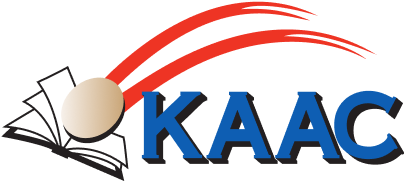Middle Grades Curriculum
For Content Assessment and Quick Recall
Each Quick Recall round contains an equal number of questions from each subject area. Each Content Assessment exam has balanced proportions from each category.
Middle Grades Mathematics
- Number Theory
- Sequences and Patterns
- Absolute Value, Integers, Rational Numbers
- Ratio, Proportion and Percents
- Systems of Measurement
- Geometry: Angles, Parallel Lines, Polygons, Circles, Geometric Solids
- Geometry: Perimeter, Circumference, Area and Surface Area
- Geometry: Volume of Prisms, Cylinders, Cones, Pyramids, and Spheres
- Indirect Measurement: Similar Polygons, Pythagorean Theorem, Special Right Triangles, Trigonometry
- Statistics and Data Analysis
- Probability: Independent/Dependent Events, Permutation, Combinations
- Inequalities and Absolute Value
- Polynomials, Polynomial Factoring, Algebraic Fractions
- Relations, Functions and Variations
- Linear Equations and Functions, Systems of Linear Equations
- Radicals and Exponents
- Quadratic Equations and Functions
Middle Grades Science
- Matter: Chemical and Physical Properties, Compounds, Elements, Mixtures
- Motion and Force: Newton’s Laws of Motion, Waves
- Transfer of Energy: Heat Predictability, Electromagnetic Spectrum, Electricity
- Living Systems’ Structure and Function: Uni/Multicellular Organisms, Specialization
- Regulation and Behavior: Obtaining and Using Resources, Stimuli
- Reproduction and Heredity
- Populations, Communities and Ecosystems: Food Webs, Sunlight & Energy Flow, Carrying Capacity
- Earth’s Subsystems: Lithosphere, Atmosphere, Hydrosphere, Climate, Resources
- Solar System and Beyond: Objects, Events, Gravity/Inertia, Constellations
- Scientific Process: Experiments and the Scientific Method, Tools of Science, Lab Safety and First Aid (Written Assessment only)
- Plants: Resources/Uses, Evolution, Life Cycles
- Animals: Evolution, Life Cycles
- Fungi, Viruses and Bacteria
- History of Science: Scientists, Inventions/Inventors, Fields of Study, Technology, Current Events in Science
- Health and Nutrition
Middle Grades Social Studies
- Current History: People and Events from the Most Recent 5 Years.
- U.S. Geography: Physical and Political
- World Geography: Physical/Political Geography, Maps
- Geography: Climate, Land, Resources, Map Skills
- World Civilization: River Valleys, Fertile Crescent, India, and China
- World Civilization: Ancient Africa and Egypt, Greece, and Rome
- World Civilization: Middle Ages, including Song, Sui, and Tang China, Islamic Empires, the Americas, African Civilizations, and Medieval Eurpoe.
- World Civilization: Age of Exploration – Emphasis on European Explorers
- U.S. History: Prehistory and Native American Cultures
- U.S. History: Colonial Period including Westward Expansion (1500-1775)
- U.S. History: Becoming a New Nation (1775-1815)
- U.S. History: The Nation Grows (1815-1860)
- U.S. History: Civil War and Reconstruction
- U.S. History: Presidents and Great Political Figures
- U.S. Government (Major Documents and Citizenship)
- Economic: Principles, Practices, Money/Banking, Economic Systems
Middle Grades Language Arts
- Classic American Novels (Early American to 1900)
- Newbery Award Winners
- Classic Children’s Novels
- Award-winning Contemporary Young Adult Literature
- Award-winning Contemporary Young Adult Nonfiction
- Famous Poets and Poetry (including Contemporary)
- Famous Plays and Playwrights (including Contemporary), Famous Speeches
- Short Stories: Authors, Titles, Characters, Themes
- Characters in Fables, Folklore, Tall Tales
- Grammar: Types of Sentences, Phrases, Clauses, Mechanics, Language Usage
- Grammar: Punctuation, Sentence Structure, Capitalization
- Parts of Speech and Their Usage
- Vocabulary: Spelling and Definitions
- Vocabulary: Greek and Latin Affixes and Roots
- Common Foreign Words and Phrases
- Literary Devices and Techniques
Middle Grades Arts and Humanities
Updated May 2017
- Visual Arts: Elements of Art, Music, Dance and Drama
- Visual Artists and Their Works – Emphasis on Michelangelo, Durer, Velazquez, van Gogh, Picasso, Rembrandt, Monet
- Visual Artists and Their Works – Emphasis on Goya, Cassatt, Warhol, Wood, Mondrian, Hopper, Rockwell
- Architecture — Emphasis on Ancient Greece and Rome; Architects – Emphasis on Palladio, Frank Lloyd Wright, Brunelleschi, Gehry, Gropius, Michelangelo, Wren
- Composers and their Works: Classical, Baroque and Romantic – Emphasis on Mozart, Handel, Wagner, Debussy, Vivaldi, Chopin, Beethoven, Tchaikovsky
- American Composers and their Works
- Musical Instruments and Families (including traditional folk instruments)
- Purposes and Styles of Music— including Latin musical styles, Medieval (e.g. Gregorian chant), gospel, popular, ballads
- Dance: Historical/Cultural Aspects; Dancers and Choreographers
- World Religions and Holidays, Religious Leaders and History
- Mythology: Greek and Roman Gods, Goddesses and Characters
- Drama/Theater: Age-appropriate Musical Theater and Broadway Plays
- Persons or Artifacts Identified as Cultural Representatives: Emphasis on (2024) Twin Towers, Great Wall of China, Mickey Mouse, Indiana Jones, Legend of Zelda, The Beatles, Dolly Parton, Muhammed Ali, Pele, McDonald's, Princess Diana, Kiwi, Star Wars, Flintstones, It's a Wonderful Life; (2025) Golden Gate Bridge, Mt. Fuji, Wonder Woman, Dracula, Pikachu, Elvis, Bill Monroe, Michael Jordan, Babe Ruth, Legos, Titanic, Canadian Mounted Police, James Bond, Betty Boop, The Andy Griffith Show; (2026) Statue of Liberty, Christ the Redeemer, Snoopy, Joker, Mario, Prince, Elton John, Williams sisters, Wayne Gretsky, Oprah, "Keep Calm and Carry On", Day of the Dead, Saturday Night Live, Looney Tunes, I Love Lucy
